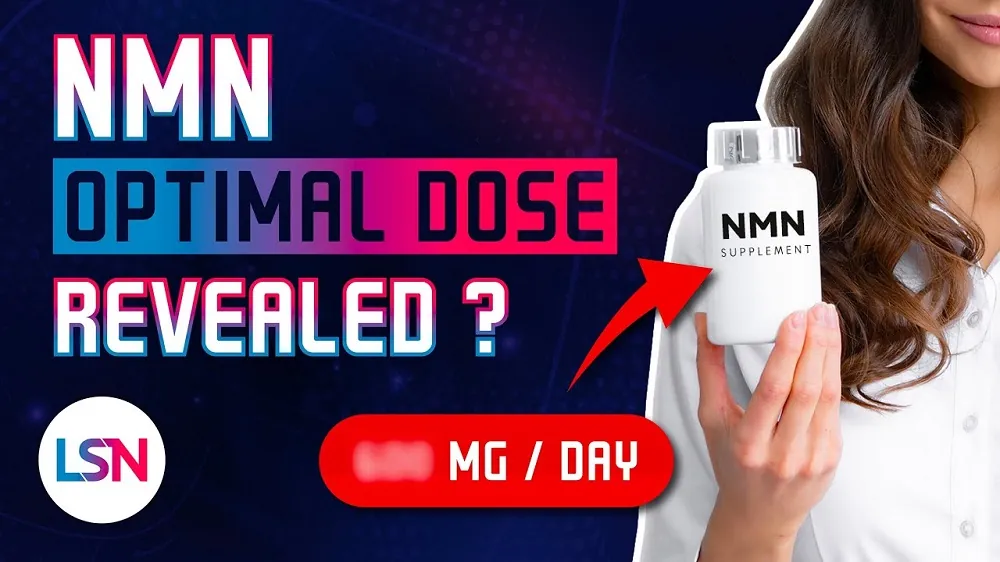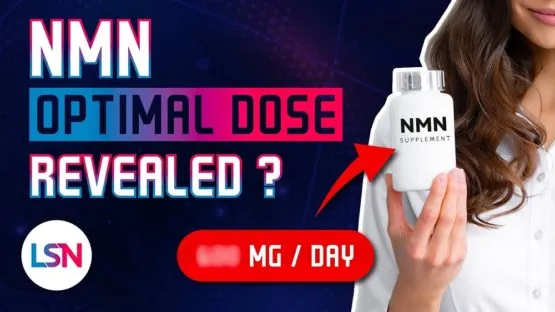Script
A new study suggests that NMN supplementation can indeed elevate NAD+ levels and increase walking distance in healthy participants, and has narrowed in on 600 milligrams a day being the optimal dose.
While NAD+ can be supplemented via precursors such as NMN, this route has a few roadblocks as well. For instance, studies do not always show that NAD+ precursors increase NAD+ blood levels. Their safety is a bit of a concern as well, since NAD+ can provide energy to cancer cells via glycolysis. However, in general, NAD+ precursors are currently considered safe.
This study was based on a randomized, multicenter, double-blind, placebo-controlled clinical trial was co-sponsored by two companies that jointly produce a food-grade NMN product. The primary endpoint was NMN’s ability to elevate NAD blood levels, with secondary endpoints of safety and tolerability, physical performance in a walking test, blood biological age, insulin resistance, and overall health via a subjective assessment.
Previous studies were often inconsistent in showing NMN’s health benefits and its ability to affect NAD+ levels in blood. These studies were often sex-biased and/or conducted in people with pre-existing health conditions. This time, the researchers made a point of recruiting 80 healthy men and women aged 40-65 with a wide range of BMI scores. Three different doses of NMN were investigated: 300, 600, and 900 milligrams a day.
NAD levels were increased significantly in all study groups compared to placebo and baseline. There was also a significant difference between 300 and 600 milligrams a day but not between 600 and 900 milligrams a day. Interestingly, most of the increase in NAD+ levels happened during the first 30 days of the study, while during the second month, the researchers only saw a very mild additional increase.
The six-minute walking distance at baseline was about 300 meters across the groups, which is on the slower side. It significantly improved in the three study groups compared to placebo and baseline. Here, too, the difference between 300 and 600 milligrams a day was large, but the difference between 600 and 900 milligrams a day was virtually nonexistent. The gains in walking distance were substantial, with both 600 and 900 milligrams a day groups adding about 150 meters: a 50% increase.
The participants were not required to perform any regular physical activity during the experiment, and the tests were done just three times: at baseline, after the first month, and after the second month. If there was any habituation to the walking test, it should have been noticeable in the placebo group. However, in this group, no increase in walking distance occurred. It is possible that participants on NMN began feeling more invigorated early into the study period, and increased their physical activity accordingly, which led to better results measured in the clinic.
The participants were also asked to complete a 36-question health and quality of life questionnaire. The scores mostly followed the same dynamic as NAD+ levels and walking distance: there was some increase in the 300 milligrams a day group compared to placebo, and a much more pronounced increase in both the 600 milligrams a day and 900 milligrams a day groups. However, there was no significant difference between those two groups. This study appears to establish 600 milligrams a day of NMN as a preferred dose that seems to significantly affect NAD levels and physical performance. As in previous NMN trials, no safety problems were reported. However, it does not mean that either efficacy of safety of NMN supplementation have been proven beyond any doubt; therefore, there should be more studies with larger sample sizes, different endpoints, and longer follow-up period.
So, will these results change how you view NMN? Is NMN a part of your longevity strategy? Let us know in the comments below!
When there’s more to share we’ll have it for you here, so please subscribe so you don’t miss out! I’m you host, Ryan O’Shea, and we’ll see you next time on Lifespan News!




